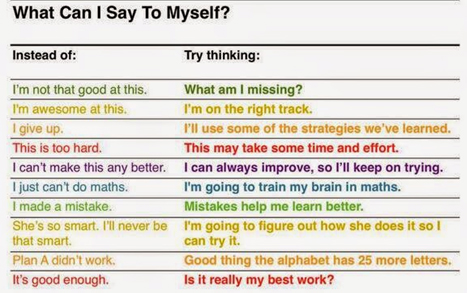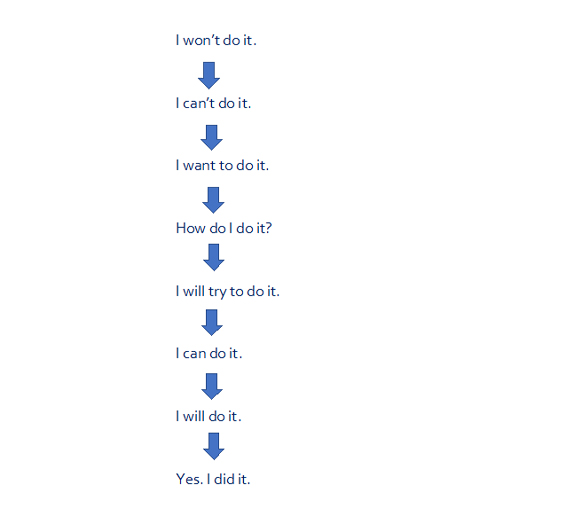An evening with Mr Viiveck Verma
On Friday, February 24, as part of the WiseViews series, we had a very interesting session by Mr Viiveck Verma the CEO of Upsurge Global.
About Mr Viiveck Verma
Mr Verma is a specialist in corporate strategy with over three decades of sectoral and cross-functional work experience. After serving as a C-level executive for many years, he decided to move into the start up space to invest in, launch, and mentor new firms. His background in P&L and corporate strategy and experience of creating of more than 10 notable intrapreneurial corporate ventures, makes him well placed to do this.
Building brands is Mr Verma’s forte, where he has noteworthy accomplishments like TEDx Hyderabad, SAHE, and Upsurge Global. More than 130 commercial start-ups and 10 social businesses have benefited from Mr Verma’s investments, mentoring, and brand building efforts. Beyond these 140 organisations, he uses his network to increase efficiency and assist ecosystem growth. Mr Verma achieves this through regular engagement with incubators, educational institutions, industry associations, and enterprises.
order to comprehend the human mind and behaviour, Mr Verma has completed various certifications, including Zengar Miller Leadership trainer and Professional Certified Coach (PCC) from International Coaching Federation (ICF). He is an essayist for reputed publications and has authored a book.
An early failure
Mr Verma began with a personal story. A son of an army officer and Professor of Anatomy at AFMC, Pune, Mr Verma faced the prospects of repeating the 9th grade as he had failed in four subjects. This was a wakeup call. He persuaded the school to give him a second chance. After that, there was no looking back. He scored distinction in Class 10, 11 and 12 and went on to top his university in his graduation in geology.
Understanding failure
This early failure and how he bounced back, taught Mr Verma very important lessons. Failure is not about us. It is about something that did not work, i.e. a lack of success while doing something. Unfortunately, in our culture, we tend to equate the two.
If we view failure as something bad and start blaming ourselves, we will avoid any endeavour, where there is a possibility of failure. In entrepreneurial hubs like Silicon Valley/Israel, both success and failure are celebrated.
During the Q & A, Mr Verma admitted that our philosophy and scriptures encourage a stoic, long term view of life, without worrying about failure. (The Gita tells us not to be obsessed with the outcome and to focus only on the effort.) But when it comes to practice, we have a different mindset.
Grooming children
We teach our children to compete with others and get the highest marks. We drill into children that they must be better than others in their class. Colleges announce high marks cut offs for admissions (Lady Sri Ram set an impossible 102% as the cut off recently.). This has further fuelled competition. That is also why, Indians do not work well in teams.
We should allow our children to talk about their problems. We can encourage them to aim high. But we should be tolerant towards failures and not judge them too early.
Recently, Mr Verma, along with some colleagues, worked with a group of underprivileged children and asked them to draw the future. They were doubtful about the output. But the children amazed them with their drawing and painting skills. They drew homes with solar panels and windmills.
Failure creates opportunities.
Failure helps us to improve and develop ourselves:
- We have one more chance to try again.
- We are learning.
- We can work on our creative side.
- Early failures provide phenomenal learning at a low cost.
- The excitement to do more things stays alive.
- We can identify ways to change the way we work.
- If people do not fail, there is no role for managers.
- Failure helps us to understand ourselves and our potential better.
As President Abdul Kalam once mentioned: “When we tackle obstacles, we find hidden reserves of courage and resilience we did not know we had. And it is only when we are faced with failure do we realise that these resources were always there within us. We only need to find them and move on with our lives.”
Myths about failure
Failure is final: Life itself is continuing. So why should failure be the end?
Failure means you are not good enough: Failure is only with respect to a specific endeavour.
Success is impossible once you have failed: Failure is not the opposite of success. It is a part of success.
Successful people never fail: Many successful people have failed quite a few times (Some had spectacular failures and some were even written off.) before they got to where they reached. Examples include Steve Jobs, Albert Einstein, Walt Disney, Michael Jordan, the Beatles and Oprah Winfrey.
You should be ashamed of failing: Failure is a fantastic scar to carry.
Note: Mr Verma pointed out that we should not repeat the same mistake. When we make a mistake for the first time, we should not blame ourselves. But the second time we encounter a similar situation, there is a choice in front of us.
Self-reflection after failure
Some amount of reflection after every failure can help. We should notice behavior patterns. Signs that we are afraid of failure include: Avoidance, Anxiety, Feeling of helplessness, Feeling of being powerless, Indecision, Feeling of being out of control.
We should reflect on our core values: Often it is the conflict between our values and the those of the organization, which leads to failure.
As we reflect on our failure, we should be forgiving towards ourselves and not punish ourselves. We should shift the focus to addressing the problem and learning from our mistakes. Instead of keeping it to ourselves, we must discuss with others. We must question our fears and look at what we can control.

The growth mindset
It is important to develop a growth mindset. Growth mindset means our basic qualities can be cultivated through our own efforts and help from others. With a growth mindset, we focus on getting better and better, trying new things, and stretching ourselves. We believe we can achieve what we want with time and practice. The success of others inspires us rather than make us feel defensive.
With a growth mindset, we are more likely to persist through obstacles and challenging situations. We will be open to feedback and have a higher level of awareness about where we are. We will realize that it is hard work which will take us forward.
The growth mindset is about valuing what we are doing irrespective of the outcome. It is about problem solving and charting new courses. In contrast, a fixed mindset is about preoccupation with success and the fear of failure.
Here is how we change as we move from fixed to growth mindset:

During the Q&A, Mr Verma added that mindset lies at the centre of everything. By changing our mindset, we can change many things. The way we receive and respond to signals depends on the mindset. With a growth mindset, we feel we are in charge. We do not feel helpless or blame the circumstances. We realize that we cannot control the world, but we can control our thoughts and reactions. We realize that we can change our neurons.
Q&A
There is no universal definition of success. It is relative, circumstantial and depends where we are on the evolution curve. For a startup going from 0 to 1, success would be defined very differently from another going from 1 to 10. We should also be clear about whether we are running a sprint, middle distance race or a marathon. Accordingly, we can spend our time and energy. But ultimately success should be defined by us, looking inwards. If we look around us and try to imitate others, we are likely to be disillusioned.
Lack of understanding of the problem statement.
We should understand the problem carefully and then develop the solution.
If we develop a solution and go in search of a problem, it may not work out.
Focus on valuation rather than value creation.
If we focus on creating value, we will over time achieve a good valuation.
But if we are obsessed with funding and valuation, the path will be risky.
Ability to take feedback
One common reason for failure is falling in love with our own idea. When someone points out a problem, if we think: ”You have not understood me”, then there is a big problem.
We should not come to a judgment about anyone quickly. We should observe the behaviours of people carefully.
- Usage of buzzwords without being clear about what they mean is a red flag.
- Lack of listening skills is another cause for concern.
- Last but not the least, a single founder is a red flag. It is difficult for one person to have all the capabilities required to manage a startup. This is also an indication of the founder’s inability to work with others.
It is important to improve our executive presence. There are two things involved here:
Understanding the organization better and finding out what are the right things to do: What are the success criteria? Is it internally or externally focused? Is it people oriented or task oriented? How are we supposed to talk, dress, conduct ourselves, etc?
Understanding our own presence: How we are perceived by others.
We should identify the gaps between the two and work towards reducing them. If they are insurmountable, we may have to explore other options.
Sometimes too much positivity can be a bad thing. Think of a coach who tells you that he can enable you to achieve anything. Self-assessment/self-awareness is important. We should develop our definition of success and have realistic goals. If we set unrealistic goals, there will be disappointment and it may lead to fear of failure. On the other hand, if we make good progress towards realistic goals, we will be encouraged to aim higher, in the next round.
The work culture in western countries is focused on performance. Biases and judgments play a smaller role. The thought process is how to take the entire team forward. In India, the the focus is on individual performance. Even when it comes to mundane matters like tea and coffee, the practices are different. The westerners know they can get tea and coffee whenever they want. But in India, it may be served at specific times during the day. These cultural differences have created a gap between Indians and NRIs.
The entrepreneur has to take the lead here and shape the mindset. Every attempt should be made to hire the people with the right mindset. If there is a misalignment of values, efforts should be made to support the person. If the person still does not change, there may be no option but to let him go. It is also important that the entrepreneur acts as a role model. Thus if frugality is expected from the employees, the entrepreneur should not have an extravagant lifestyle.
We must accept that failure is part of life. When we fail, it is ok to get upset but soon we most start reflecting on the lessons. We must own our mistakes. We must move on.
